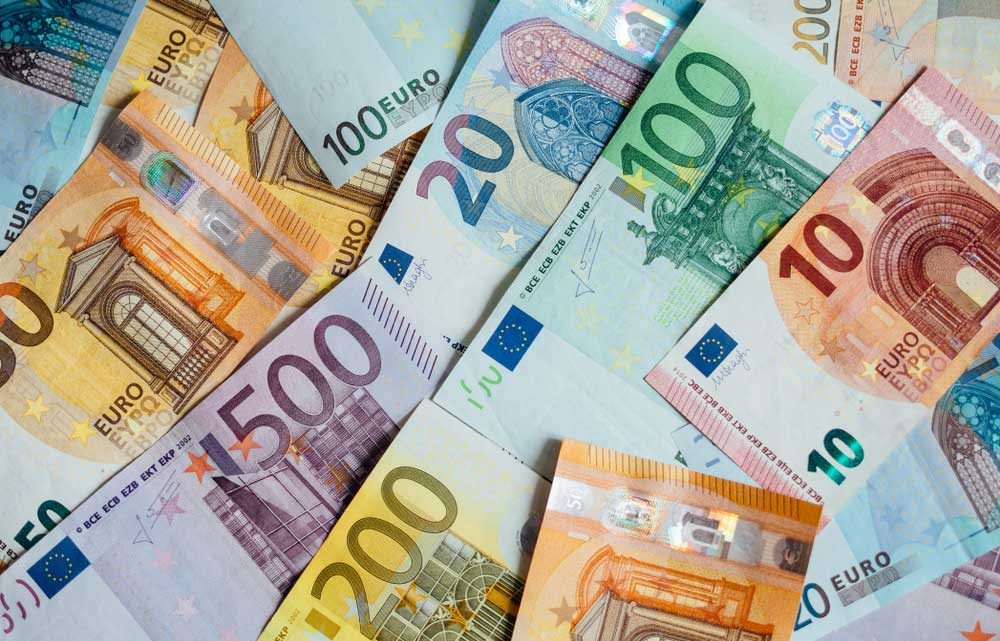The euro, Europe’s common currency, turns 20 on 1 January 2019.Exactly 20 years ago, on 1 January 1999, 11 EU countries launched a common currency, the euro, and introduced a shared monetary policy under the European Central Bank.
The historic moment was a milestone on a journey driven by the ambition of ensuring stability and prosperity in Europe. Today, still young, the euro is already the currency of 340 million Europeans in 19 Member States. It has brought tangible benefits to European households, businesses and governments alike: stable prices, lower transaction costs, protected savings, more transparent and competitive markets, and increased trade. Some 60 countries around the world link their currencies to the euro in one way or another, and we can and are doing more to let the euro play its full role on the international scene. Other EU Member States are expected to join the euro area once the criteria are met.
To mark this anniversary, the five Presidents of the EU institutions and bodies most directly responsible for the euro, the European Commission, the European Parliament, the European Council, the European Central Bank and the Eurogroup, commented on the 20 years of the single currency and on its future.
Jean-Claude Juncker, President of the European Commission, said: “As one of the only signatories of the Maastricht Treaty still politically active today, I remember the hard-fought and momentous negotiations on the launch of the Economic and Monetary Union. More than anything, I recall a deep conviction that we were opening a new chapter in our joint history. A chapter that would shape Europe’s role in the world and the future of all its people. 20 years on, I am convinced that this was the most important signature I ever made. The euro has become a symbol of unity, sovereignty and stability. It has delivered prosperity and protection to our citizens and we must ensure that it continues to do so. This is why we are working hard to complete our Economic and Monetary Union and boost the euro’s international role further.”
Antonio Tajani, President of the European Parliament, said: “The euro is more popular today than ever: three out of four citizens believe it is good for our economy. In order for Europeans to benefit fully from the jobs, growth and solidarity that the single currency should bring, we must complete our Economic and Monetary union through genuine financial, fiscal and political Union. This will also allow Europe to better shield its citizens from potential future crises.”
Donald Tusk, President of the European Council, said: “The creation of the euro 20 years ago — alongside the liberation of Central and Eastern Europe and the reunification of Germany— was a pivotal moment in European history. Our common currency has since matured into a powerful expression of the European Union as a political and economic force in the world. Despite crises, the euro has shown itself resilient, and the eight members which joined the original 11 have enjoyed its benefits. As the world keeps changing, we will keep upgrading and strengthening our Economic and Monetary Union.”
Mario Draghi, President of the European Central Bank, said: “The euro was a logical and necessary consequence of the single market. It makes it easier to travel, trade and transact within the euro area and beyond. After 20 years, there is now a generation who knows no other domestic currency. During that time, the ECB has delivered on its main task of maintaining price stability. But we also contribute to the well-being of euro area citizens by developing safe, innovative banknotes, promoting secure payment systems, supervising banks to ensure they are resilient and overseeing financial stability in the euro area.”
Mário Centeno, President of the Eurogroup, said: “The single currency has been one of the biggest European success stories: there can be no doubt about its importance and impact over the first two decades of its history. But its future is still being written, and that puts a historic responsibility on us. The euro and the close economic cooperation that it entails has evolved over time, overcoming challenges in its way. It has come a long way since the start, and it has seen important changes in the wake of the crisis to help us leave the hardship behind. But this work is not yet finished, it requires continuous reform efforts in good times as in bad times. There can be no doubts of our political will to strengthen the Economic and Monetary Union. We need to be prepared for what the future may hold – we owe that to our citizens.”



